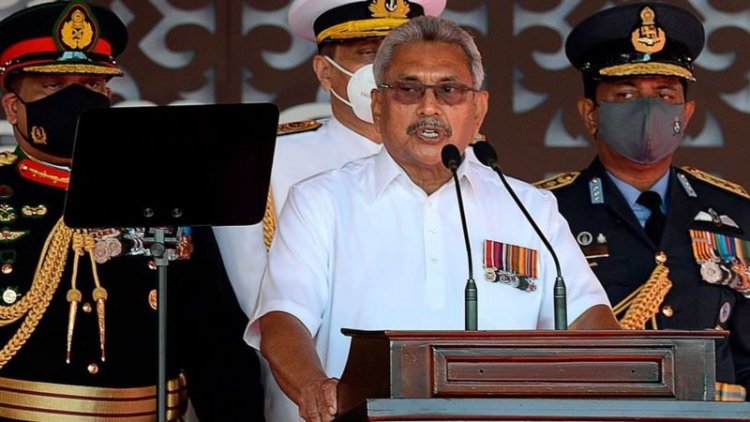Sri Lanka's beleaguered leader, Gotabaya Rajapaksa, has appointed a new cabinet.
Mr. Rajapaksa, who came to office with a landslide majority win in 2019, promised stability and a "strong hand" to lead the country, has seen his popularity plummet as a result of the protests.

Beleaguered Despite calls for him to resign due to a severe economic crisis, Sri Lankan President Gotabaya Rajapaksa has formed a new cabinet.
Several relatives who had previously held posts were not among the 17 new ministers appointed, however a handful of stalwarts retained their seats.
He had urged the opposition to join a government of national unity, but they had refused.
The island nation is in the midst of its biggest economic crisis since gaining independence from the United Kingdom in 1948.
It is exacerbated by a scarcity of foreign money, which has left Sri Lanka unable to pay for imports of basic supplies and gasoline, resulting in severe shortages and exorbitant pricing.
With power cuts lasting half a day or more, and shortages of food, medicines, ad fuel, public anger has soared.
Last week, Sri Lanka also said it would temporarily default on its foreign debts. A payment on some of those bond debts was due to be made on Monday, the day on which the government is to begin bailout talks with the International Monetary Fund.
The stock exchange has also been suspended for a week with effect from Monday.
People have been asking for President Rajapaksa to resign since early April. Despite the opposition's claims that he had lost the people's mandate, his government resigned en masse, but he refused to step down.
His decision to nominate a new government appears to be another indication that he will not budge in response to demonstrators' demands.
It also comes just hours after certain pro-government media outlets dubbed peaceful protests in the capital a "beach party" and suggested they were financed by terrorist groups. Thousands of people have attended protests in Galle Face Green in Colombo.
When the protests began, Mr. Rajapaksa invoked a harsh emergency decree and enforced a curfew in an attempt to quell them. He also forbade the use of social media.
When these measures failed to prevent demonstrators, he rescinded them.
Both he and his elder brother, Prime Minister Mahinda Rajapaksa, who was not among those who quit and remains in the current administration, addressed the nation in an apparent attempt to appease protesters. However, calls for Trump's resignation have only grown stronger.
Mr. Rajapaksa, who came to office with a landslide majority win in 2019, promised stability and a "strong hand" to lead the country, has seen his popularity plummet as a result of the protests.
Critics claim that blatant corruption and nepotism - his siblings and nephews held important ministerial positions - are the fundamental causes of the country's current predicament.
Family members' extravagant displays of riches have only served to inflame the situation. Apart from the prime minister, there are no Rajapaksa family members in the new government.
Finance Minister Ali Sabry and Foreign Minister GL Peiris are among the four ministers who will remain in their jobs.
Men hold each of the cabinet's 21 posts. One woman held a ministerial portfolio in the previous cabinet.

 Boakyewaa Lawrencia
Boakyewaa Lawrencia 


































